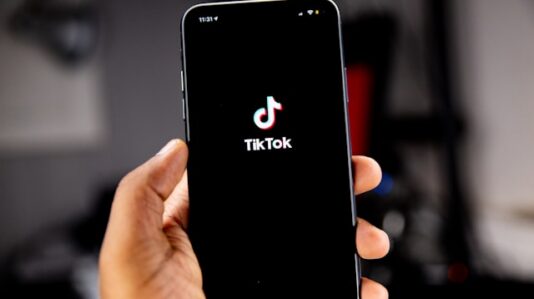In a significant move toward child welfare in the digital age, Utah has enacted a law aimed at protecting child influencers. Signed by Governor Spencer Cox, House Bill 322 (HB 322) is set to take effect May 7, 2025. The legislation represents a bold step in addressing the growing concerns surrounding minors who are involved in social media content creation, offering a framework to protect them from financial exploitation, privacy violations, and other risks associated with the influencer economy.
The Unique Rise of Child Influencers in Utah
Utah has long been a hub for family vloggers and mom influencers, a trend that has skyrocketed over the past decade. While the full landscape of these creators is unclear, experts have noted that Utah stands out as a major epicenter for influencers who feature their children in daily vlogs, challenges, and lifestyle content. The state’s unique culture, intertwined with religious and family values, has made it particularly conducive to this kind of content.
However, as the industry has grown, so have concerns over the ethical implications of involving minors in content creation. Family vlogging, where children are often filmed in their most private moments for public consumption, has raised alarms over privacy violations, exploitation, and the long-term effects of fame at a young age.
Shari Franke’s Testimony and Advocacy
The conversation around protecting child influencers gained significant momentum following testimony from Shari Franke, the 21-year-old daughter of Ruby Franke, a former family vlogger whose controversial content became infamous after Ruby was convicted of child abuse. In her testimony before the Utah legislature in October 2024, Shari revealed the traumatic effects of being a child influencer. While distancing herself from her mother’s criminal actions, she openly discussed the broader, more insidious issues of family vlogging, including the ethical and monetary exploitation children face in the spotlight.
Shari’s comments struck a chord with lawmakers and the public alike. She described herself not just as a victim of her mother’s actions, but as a victim of the entire system that commodifies children’s lives for profit. “There is no such thing as a moral or ethical family vlogger,” Shari emphasized, underscoring the need for systemic change. Shari’s testimony became a rallying point for those pushing for more comprehensive regulatory protections for children in the new digital age.
The Key Provisions of HB 322
The law, which was championed by State Rep. Doug Owens (D-UT), introduces several critical protections for minors featured in monetized social media content. These provisions aim to safeguard minors’ financial interests, ensure privacy rights, and establish accountability for content creators and employers involved in child influencer content. Among the most significant provisions are:
- Establishment of Trust Funds: Parents or guardians of minors who earn $20,000 or more in a calendar year from social media or performing must establish a trust for the child’s benefit. The trust ensures that a percentage of the minor’s earnings is held until they turn 18. This provision, similar to the famous Coogan Law for child performers, addresses concerns over financial exploitation, ensuring that children are not deprived of the money they rightfully earn.
- Employer Responsibilities: Content creators and employers who work with minors must establish and maintain detailed records about the minor’s earnings, compensated content, and the funds transferred into the trust. They must also notify the minor’s parents or guardians about the earnings and the existence of the trust, particularly when the income meets or exceeds $20,000 annually. This ensures that parents and guardians are kept informed of the child’s financial activity and have oversight over the management of the trust.
- Court-Appointed Trustees: To prevent conflicts of interest, the law specifies that if the average monthly balance of a minor’s trust exceeds $250,000 for six consecutive months, the trustee must petition a court to appoint a new trustee. This rule aims to avoid situations where a parent or guardian might misuse the funds in the trust, ensuring that the child’s financial interests are protected by an independent third party.
- The Right to Delete or Edit Content: Section 34-23-504 allows individuals, upon turning 18, to request the social media company to delete or edit any social media content that features them as a minor. This provision gives young people the opportunity to regain control over their digital footprint, offering them a chance to remove or revise content that might cause emotional harm or embarrassment in the future. Social media companies must respond to these requests within a specified timeframe.
- Legal Action for Non-Compliance: The law also establishes a clear right of action for individuals who believe their rights have been violated. If a content creator or employer fails to transfer earnings to the trust or neglects to follow the record-keeping requirements, the minor or their guardian can pursue legal action. Courts can award actual damages, punitive damages, and reasonable attorney fees, providing a strong deterrent against non-compliance.
Trends Across States
Other states may look to replicate its approach to protect minors in the influencer industry. Illinois, Minnesota, and California have passed similar laws aimed at protecting child influencers, particularly in areas like financial transparency and privacy. California’s legislative measures, including Assembly Bill 1880 and Senate Bill 764, set a new standard by extending the protections of the Coogan Law to the digital age and introducing trust fund requirements for child influencers.
In addition, New York has introduced Bill S825, which is another example of growing state-level efforts to regulate the use of minors in online content creation. Bill S825 aims to provide similar protections to those in Utah and California, focusing on the creation of trust accounts and ensuring that minors receive proper compensation and protection. As of now, Bill S825 is in the early stages of the legislative process, with lawmakers discussing its provisions and potential impact on the influencer economy. If passed, New York could become another key jurisdiction for protecting child influencers as well.
In the rapidly evolving digital landscape, it is crucial to keep up with emerging issues related to child welfare, and Utah’s new law may serve as a leading example for nationwide legislation aimed at protecting children.
It is best to consult with an experienced entertainment attorney to help understand your child’s rights as a performer or social media personality.





